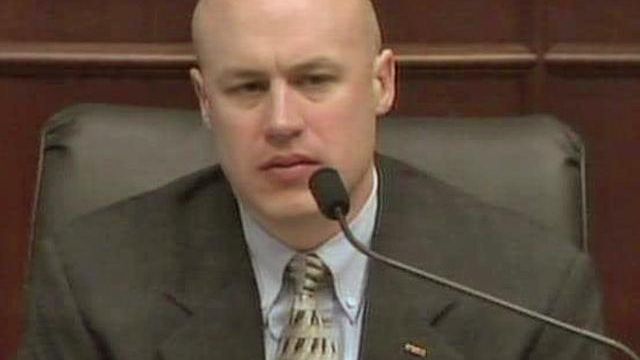Officer: Doctor impaired after wreck that killed ballerina
Wednesday marks the second day of the trial of Raymond Dwight Cook, a former facial plastic surgeon, on charges of second-degree murder, driving while impaired and felony death by vehicle in the Sept. 11, 2009, wreck that killed Elena Bright Shapiro, 20, a dancer with the Carolina Ballet.
Posted — UpdatedOfficer J.A. Geisendaffer said he was the first Raleigh police officer at Lead Mine and Strickland roads, where prosecutors say Cook crashed into the back of Shapiro's Hyundai as she pulled onto Strickland Road.
Geisendaffer testified that that he smelled "a moderate odor of alcohol" after being with Cook in his patrol car for "a matter of seconds." He also said that Cook had red, watery and bloodshot eyes, was stumbling and couldn't walk in a direct path.
Multiple witnesses testified that a dark sedan was speeding, anywhere from 75 to 100 mph, along Strickland Road, toward Lead Mine Road.
Driver Chandra Parker said that the sedan flew past her, then disappeared down a hill.
"It came by me so fast that I cringed. I feared for my life," Parker said. "I thanked God the car didn't hit me, but little did I know what I would see when I got to the bottom of the hill – lights flashing, smoke billowing up."
Geisendaffer said that he was surprised by the severity of the wreck, and emergency medical technician Simon Capell testified that it was the most damage he had ever seen at a wreck scene.
Driver Adam Wright said that he was driving home when the wreck happened in front of him. As he called 911, Wright said, Cook argued that they should pull Shapiro out of the car. Later, he said, Cook tried to give her mouth-to-mouth resuscitation as an off-duty EMT did chest compressions.
"Mr. Cook attempted (to resuscitate her), but he was doing it wrong," said Wright, who is a CPR-certified personal trainer. "He did not do it correctly."
Cappell said he happened upon the wreck while driving home and was the first emergency medical worker there. Cappell said he got Shapiro out of the car and did only chest compressions, because EMTs are trained to avoid mouth-to-mouth due to the risk of infection. Cook jumped in to do mouth-to-mouth, he said.
Trauma surgeon Lori Lilley said that Shapiro had a only a weak pulse and was likely brain dead when she arrived at WakeMed. She was pronounced dead shortly after.
Jurors also watched video of the wreck scene taken by the dashboard camera in Geisendaffer's police cruiser and listened to 911 calls about the wreck.
Prosecutors have contended that because Cook had been drinking, the wreck was no accident. Defense attorneys, though, have argued that although evidence shows that Cook was drinking and was speeding, that doesn't make him guilty of murder.
Under state law, prosecutors must prove that Cook should have known that his actions could kill or injure someone and that he acted with malice.
Since the wreck, Cook has surrendered his medical license and completed a stint at a rehab clinic. Before his arrest, Cook practiced facial plastic surgery and otolaryngology, a specialty in treating ear, nose, throat, head and neck disorders. He was employed by UNC Hospitals but authorized only to practice at WakeMed in Raleigh.
• Credits
Copyright 2024 by Capitol Broadcasting Company. All rights reserved. This material may not be published, broadcast, rewritten or redistributed.





